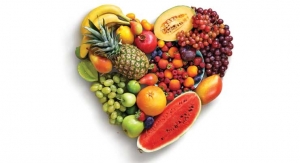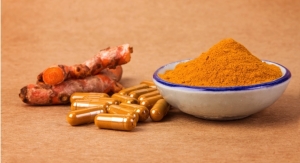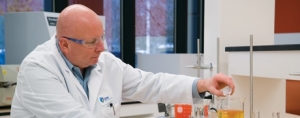03.01.10
Nutraceutical: Hibiscus sabdariffa L. tea (tisane)
Indication: Blood pressure (BP)
Source: J Nutr, February 2010; 140(2):298-303.
Research: In vitro studies show Hibiscus sabdariffa L., an ingredient found in many herbal tea blends and other beverages, has antioxidant properties, and, in animal models, extracts of its calyces have demonstrated hypocholesterolemic and antihypertensive properties. The objective in this study was to examine the antihypertensive effects of H. sabdariffa tisane (hibiscus tea) consumption in humans. A randomized, double-blind, placebo-controlled clinical trial was conducted in 65 pre- and mildly hypertensive adults, ages 30 to 70, not taking blood pressure (BP)-lowering medications, and drinking either three 240-mL servings per day of brewed hibiscus tea or placebo beverage for 6 weeks. A standardized method was used to measure BP at baseline and weekly intervals.
Results: At 6 weeks, hibiscus tea lowered systolic BP (SBP) compared with placebo. Diastolic BP was also lower, although this change did not differ from placebo. The change in mean arterial pressure was of borderline significance compared with placebo. Participants with higher SBP at baseline showed a greater response to hibiscus treatment. No effects were observed with regard to age, gender or dietary supplement use. These results suggest daily consumption of hibiscus tea, in an amount readily incorporated into the diet, lowers BP in pre- and mildly hypertensive adults and may prove an effective component of the dietary changes recommended for people with these conditions.
Indication: Blood pressure (BP)
Source: J Nutr, February 2010; 140(2):298-303.
Research: In vitro studies show Hibiscus sabdariffa L., an ingredient found in many herbal tea blends and other beverages, has antioxidant properties, and, in animal models, extracts of its calyces have demonstrated hypocholesterolemic and antihypertensive properties. The objective in this study was to examine the antihypertensive effects of H. sabdariffa tisane (hibiscus tea) consumption in humans. A randomized, double-blind, placebo-controlled clinical trial was conducted in 65 pre- and mildly hypertensive adults, ages 30 to 70, not taking blood pressure (BP)-lowering medications, and drinking either three 240-mL servings per day of brewed hibiscus tea or placebo beverage for 6 weeks. A standardized method was used to measure BP at baseline and weekly intervals.
Results: At 6 weeks, hibiscus tea lowered systolic BP (SBP) compared with placebo. Diastolic BP was also lower, although this change did not differ from placebo. The change in mean arterial pressure was of borderline significance compared with placebo. Participants with higher SBP at baseline showed a greater response to hibiscus treatment. No effects were observed with regard to age, gender or dietary supplement use. These results suggest daily consumption of hibiscus tea, in an amount readily incorporated into the diet, lowers BP in pre- and mildly hypertensive adults and may prove an effective component of the dietary changes recommended for people with these conditions.
















